The Chiu Chow flavours originated around the Swatow district of eastern Guangdong province and are now among the most popular in Hong Kong. Piquant sauces often enhance dishes, with tangerine jam for steamed lobsters and broad-bean paste for fish. Duck and goose are Chiu Chow favorites. Spicy goose is served with garlic and vinegar sauce.Many Chiu Chow classic dishes are light and tasty, with an abundant use of vegetables. Chiu Chow chefs are skilled vegetable carvers, creating fine flowers, birds, dragons and phoenixes from carrots and ginger. The region's deluxe delicacies include shark's fin and bird's nest soups. The pungent Tiet Kwun Yum oolong tea served in tiny cups before and after a meal is a digestive aid.
Shanghainese
| Experience the sensationally rich, sweet flavors of Shanghainese cuisine. |
|
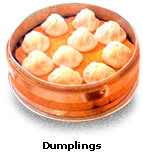  | Shanghai does not have a definitive cuisine of its own, but refines those of the surrounding provinces. Its flavours are heavier and oilier than Cantonese cuisine, featuring preserved vegetables, pickles and salted meats. Lime-and-ginger-flavoured "1,000-year-old" eggs are perhaps Shanghai's best-known culinary creation. Beggar's Chicken is a legendary dish wrapped in lotus leaves, covered in clay and oven-fired to steamy, tasty perfection - in olden times, it was baked in the ground. Other popular dishes include hairy crab, "eight treasure" duck, "drunken" chicken, braised eel and yellow fish. Dumplings, breads and noodles are served more often than rice. |
|
|
|
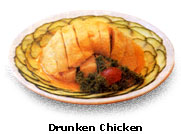
Peking (Beijing)
| Originated in the Imperial courts, Peking's stylistic dishes are fit for an emperor. |
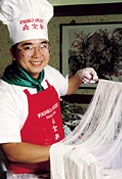  | This mouth-watering cuisine is renowned for its use of the best ingredients. Its flavors are influenced by highly flavored roots and vegetables such as peppers, garlic, ginger, leek and coriander ("Chinese parsley"). The food of this northerly city is substantial, to keep the body warm. Noodles, dumplings, and breads (baked, steamed or fried) are served instead of rice. The most famous dish, Peking duck, is usually prepared for a minimum of six people. To achieve the prized crisp skin, the duck is air-dried, then coated with a mixture of syrup and soy sauce before roasting. The skin is deftly carved at the table and the slivers of skin are wrapped in thin pancakes with spring onions or leeks, cucumber, turnip and delicious plum sauce. |
|
| Popular, too, are "sizzling" plates of seafood or meat, and succulent beggar's chicken. A whole chicken is stuffed with mushrooms, pickled Chinese cabbage, herbs and onions, wrapped in lotus leaves, sealed in clay and cooked slowly. Usually, the guest of honour breaks open the clay with a mallet, allowing a fragrant aroma to escape and revealing a chicken so tender that it can be pulled apart with chopsticks. |  | 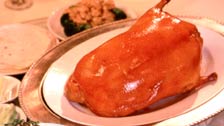 |
|
|
|
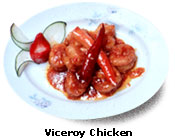
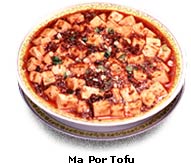
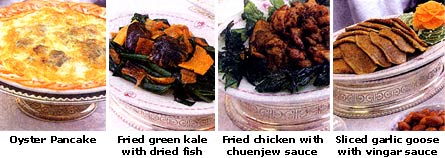
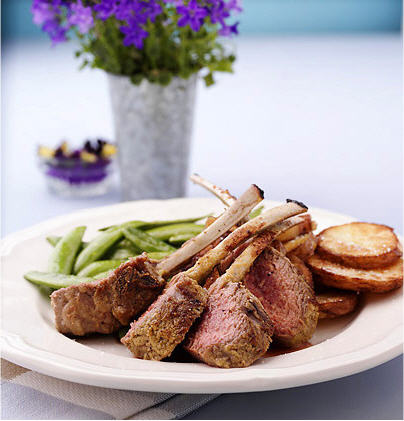


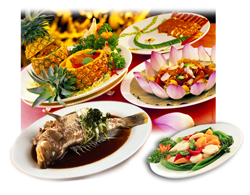
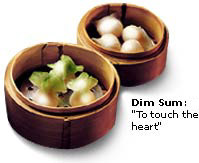
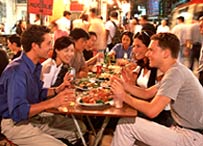




No comments:
Post a Comment